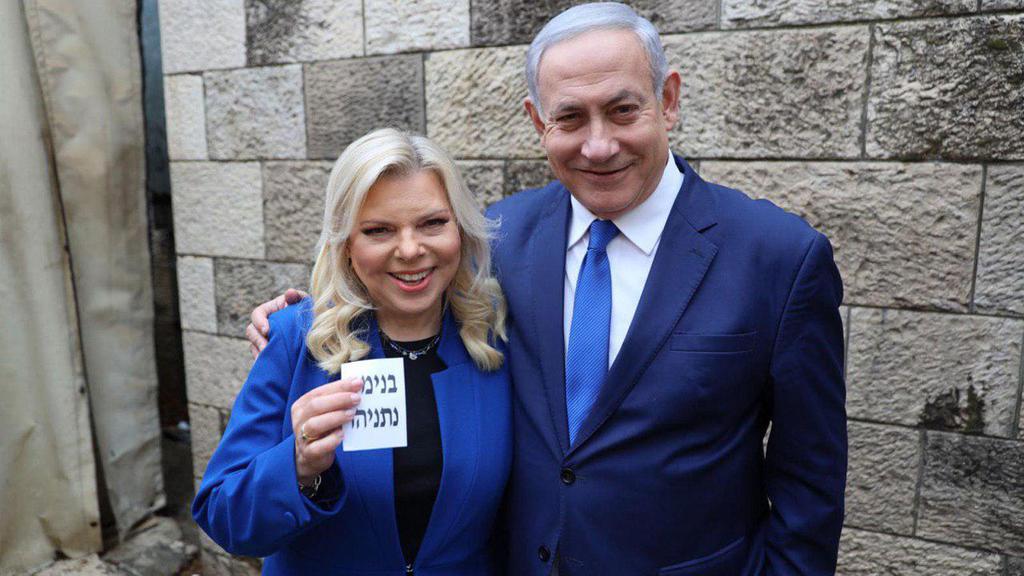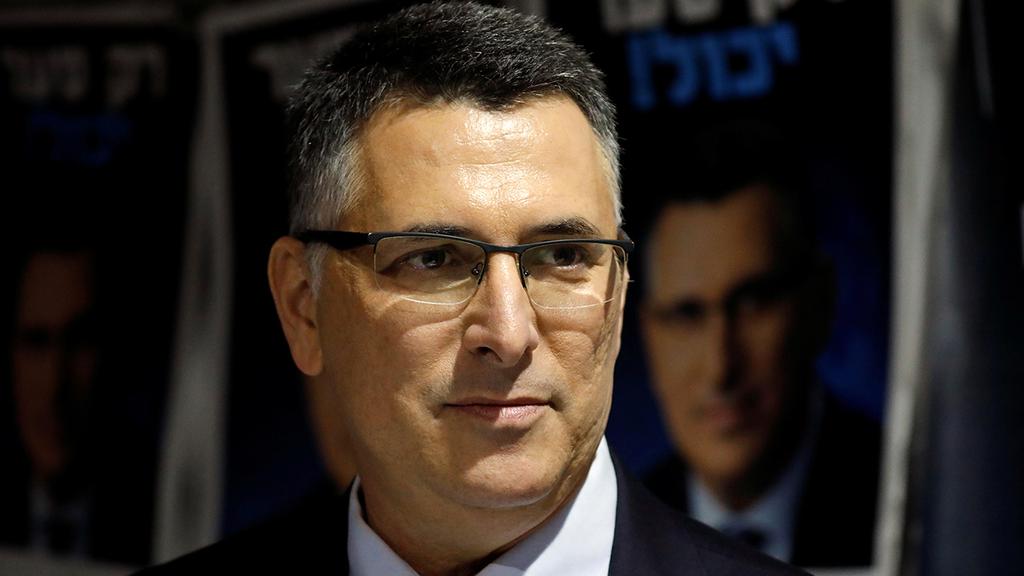Getting your Trinity Audio player ready...
Gideon Sa'ar's challenge of Benjamin Netanyahu's leadership of the ruling Likud Party last week, which he overwhelmingly lost, was either a tactical error or else perhaps part of a long-term strategy.
Sa'ar - who is clearly an experienced politician and a determined man - must surely have considered all options, including Netanyahu receiving 70% of primary voters' support to his own measly 27%.
4 View gallery


A Gideon Sa'ar campaign poster placed over a poster for Benjamin Netanyahu
(Photo: Assaf Kamar)
But still, the contender forged ahead. It appears his true intention was not to triumph over Netanyahu on Thursday but to cement his position as his heir with a bloc of supporters already in place, giving him an advantage over all other competitors as the next leader of Likud.
But with the party overflowing with sentiment and even ecstatic support for their re-elected leader, this may not be the appropriate time to test the pros and cons of the recent race. This is especially true as most of the accolades Sa'ar received for his bold move and for the fact that it highlighted the weakness of others in the upper echelons of Likud came from people who are not Likud voters.
It is possible that even those who called Sa'ar a traitor and backstabber for challenging Netanyahu's leadership at a weak moment for the leader will ultimately learn to appreciate this unique stance in the face of all the other bootlickers.
As for Netanyahu's great win, do 70% of Likud Central Committee voters who backed him at the ballot boxes demonstrate such an immense win?
Did less than the 26,000 votes that separated Sa'ar's vote tally from Netanyahu's demonstrate the difference between a great win and a colossal loss? After all, the prime minister had the advantage of control over all the party's establishment, support of all of its ministers and most of its members of Knesset.
Is it really such a win considering the vicious campaign Netanyahu supporters waged against Sa'ar?
This primary challenge does not predict the result of the general elections. Only 56,000 people voted on Thursday, less than half of registered party voters. Netanyahu only received 41,792 of the votes - and that is too small a number to draw conclusions from about his electability on the national ballot.
Staunch Netanyahu supporters will stay with him no matter what, but he will need millions of votes if he is to win the general election in March and get the recommendation of the 61 Knesset members needed to form a coalition, having already failed to do so twice in the past 12 months.
Despite being 70 years old, Netanyahu traveled around the country, lighting the fires under Likud members' feet and urging them to support his leadership.
But he was out there fighting for his life. It is not just his political future that is at stake; he may end his life wearing prison garb.
In the course of his primary campaign, Sa'ar suggested that Netanyahu be made president – thus delivering an insult in the guise of an offer of an honorable exit. He also insisted Likud would lose its hold on power if Netanyahu were not removed, but will now have to campaign for that leader.
But fear not. This politician, who in his campaign ignored the prime minister's three criminal charges and only considered his political electability, will easily find a way around this obstacle as well. Politicians are agile enough when it serves their purpose.
Anyone but Netanyahu would have quickly put the internal campaign and all its emotions behind him, including any need for revenge and any feeling of paranoia, and enlist Sa'ar's support going forward.
Netanyahu must by Tuesday announce four new ministers for portfolios he had held on to in his caretaker government. He was compelled to do so by the Supreme Court.
He must also make clear by the end of the week if he intends to seek parliamentary immunity for the three criminal charges he is facing.
Anyone but Netanyahu would promote his rival to one of the ministries now up for grabs. This would be seen as a goodwill gesture, regardless of Sa'ar's willingness to take on the task.
Despite the prime minister's political instincts, there are stronger forces inside his own home that make a climate of reconciliation unlikely. Both Netanyahu's wife and his middle son would not condone it.
Those two don't believe in revenge as a dish best served cold, they like to dish it out piping hot and fresh from the stove.




